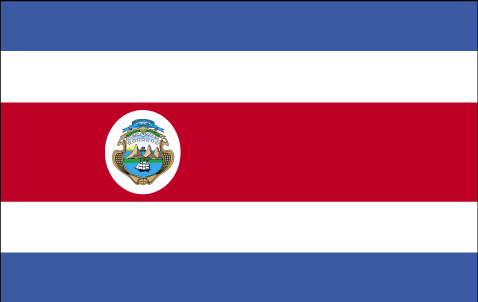Resolution #469
 |
The question of international cooperation in developing renewable energy sources. |
| Committee: Ecology & Environment | |
| Main Submitter: Costa Rica | |
| Submitted: 16/02/2025 10:41 |
| Status |
|---|
| Passed cosubmitter sheet validation |
| Approved by approval panel |
| Selected for debate by secretariat |
| Failed by committee (Ecology & Environment) |
Committee Voting
| For: | 14 |
| Against: | 32 |
| Abstentions: | 1 |
Options
Co-submitters
 | Australia |
 | China |
 | Côte D'Ivoire |
 | India |
 | Indonesia |
 | Myanmar |
 | France |
 | Italy |
 | Qatar |
Resolution
FORUM: Ecology & Environment
THE QUESTION OF: Strengthening Global Cooperation for Renewable Energy Transition
SUBMITTED BY: Republic of Costa Rica
CO-SUBMITTERS: China, India, Indonesia, Luxembourg, Morocco, Myanmar, New Zealand, Serbia
THE ECOLOGY AND ENVIRONMENT COMMITTEE,
Emphasizing the importance of international cooperation in overcoming global challenges, developments and source betterment,
Noting with concern the growing need of currently limited energy resources that comes with developments in technology and the increasing population,
Aware of of the pollution that fossil fuels produce when they are consumed and the issues that arise once they run out since they are finite,
1. Calls upon Member States to strengthen the implementation of existing international agreements, such as the Paris Agreement and the Kyoto Protocol, by:
a. Enhancing data sharing and transparency on renewable energy progress through collaboration with the International Renewable Energy Agency (IRENA) and the UN Framework Convention on Climate Change (UNFCCC);
b. Encouraging countries to set clearer national renewable energy targets and update their Nationally Determined Contributions (NDCs) to reflect stronger commitments to phasing out fossil fuels;
c. Developing regional partnerships to facilitate technology transfer and investment in clean energy infrastructure, particularly in developing nations.
2. Invites all Member States to contribute to the formation of an international initiative and/or agreement under the name of the Internationally Accessible Renewable Energy Initiative in order to achieve measures such as, but not limited to:
a. raise funds with certain campaigns in aims to be able to set up renewable energy capturing devices on low-income, highly populated countries
b. hold all crucial activity regarding renewable energy under the same name in an organised manner, making developmental technologies advance faster
c. ensuring the safety of limited resources such as water and the protection of marine life and water biodiversity by preventing the abuse of deep sea mining;
3. Encourages focusing on developing affordable electrolysis technologies to ensure:
a. that local communities receive a fair share of the benefits of green hydrogen:
i. production
ii. storage
iii. transportation
b. particularly in areas with significant potential for renewable energy and key trade routes, such as:
i. South America-North America
ii. Australia-Southeast Asia
iii. North Africa-Europe;
4. Recommends mandating all cargo carrying ships travelling through Arctic waters to:
a. have zero or minimal emission propulsion systems
b. to use renewable fuels such as:
i. hydrogen
ii. green ammonia
c. also, financing research to look at the harmful effects of oil spills on marine life, noise pollution, and shipping emissions over the long term;
5. Calls upon member states to address the possible environmental and geopolitical risks of deep-sea mining:
a. as a source of rare metals and minerals used in:
i. solar panels
ii. wind turbines
iii. batteries
b. so that it affirms the establishment of sustainable supply chains for essential minerals and the use of ethical labor practices in their extraction and processing:
i. by researching the ways of sustainable mining in order to gather the materials in a non-harmful way
ii. So that no exploitation of the environment happens;
6. Further recommends establishing a written policy agreement in order to:
a. ensure that all new solar, wind, and hydropower projects incorporate nature-based solutions such as:
i. mangrove restoration
ii. wetland conservation
iii. biodiversity corridors -especially in coastal and flood-prone regions
b. provide financial incentives for projects that score highly on environmental and social sustainability metrics
c. evaluate and rank the climate resilience of renewable energy projects;
7. Calls for all member states to actively engage in and endorse international cooperation efforts to implement the solutions and the agreements reached through these discussions;
8. Acknowledges the importance of enabling LEDCs (less economically developed countries) to participate sustainably in this change/transition of renewable energy resources, without unseeing the challenges that LEDCs face both in societal and economical aspects, this shift can be provided by;
a. financial support mechanism that includes the contribution of UNFCCC(United Nations Framework Convention on Climate Change) to help LEDCs including:
i. low-interest loans
ii. grants
iii.needed technology opportunities for the transition to renewable energy
b. ensuring fair access to renewable energy resources/technologies in order to decrease dependency on fossil fuels, these technologies can be listed as:
i. solar
ii. wind
iii. geothermal
c. promoting energy efficient practices in all industries by offering tax incentives, grants, and subsidies to organisations who use sustainable methods of producing goods and services, as well as those who avail of private small-scale renewable energy sources.